In this post, you will learn about Goddess Aphrodite, the Greek Goddess of love, beauty, and sexuality. You will learn about Aphrodite’s story, her myths, the meaning of her name, how she was born, and how to work with her archetype.
Moreover, I’ll explain about her 5 main lovers and their stories.
You may also want to read these other articles related to Aphrodite:
You can watch the video below and/or continue reading the post:
In Neo-Paganism, Aphrodite fits the Maiden Face of the Triple Goddess.
Aphrodite, as well as other Greek Goddesses, are in my free Goddess Oracle! Use the button below to access it, flip a card and receive a message from a Goddess!
Contents
Goddess Aprodite story and facts
Goddess Aphrodite is one of the best-known Greek Goddesses and maybe she’s the most popular among the Goddesses of Love in the world. She is always related to beauty, love, sexuality, and desire. She is popularly known as “the most beautiful Goddess of all”. She is also related to fertility and procreation. In some places like Sparta, she was also considered to be a Goddess of War.
The equivalent of Aphrodite in Roman Mythology is Goddess Venus. It is virtually impossible to separate the two of them, as they share the same attributes, powers, and characteristics. However, each one can be described as a different deity.
How Aphrodite was born?
Well, we have 2 different stories that state how Aphrodite was born.
It is common to hear that she was born of the union between the sky and the ocean. This, in fact, is a way of explaining the event that brought Aphrodite to life.
In short, we have to understand a bit about the myth of creation for the Greeks.
- First, we have Gaia (The Earth);
- Second, we have Uranus (The Sky);
- Gaia and Uranus had children and Kronos (Time) was one of them.
Kronos wanted to free Gaia from Uranos, who was trapping her. To do this, Kronos cut off Urano’s doodle (a symbol of male power, without it he was virtually nothing). At that moment, blood and bodily fluids spread everywhere and fell on the earth and on the sea.
Deities and nymphs were born where these drops fell. When one of the drops fell into the ocean, a foam (Aphros) arose and from this foam.
This is how Aphrodite was born.
And this happened near the island of Cyprus. That is why one of Aphrodite’s epithets (names) is Kypris.
Now, according to Homer, Aphrodite is the daughter of Zeus and Dione. Not many details on this version.
Due to this, both “versions” are accepted and some features are attributed to each of them.
- For the first, daughter of Uranus, she receives the epithet (name) Aphrodite Urania and her powers are related to the divine and heavenly love, love between Gods and homosexual love;
- For the second, daughter of Zeus and Dione, she receives the epithet Aphrodite Pandemos and her powers are related to carnal love, love between mortals and desire itself.
Considering Aphrodite Urania, we see that she is actually a Titan, before being considered a Goddess. Therefore, she is older than all the Olympic Gods. Now considering Aphrodite Pandemos, she is sister to other Goddesses like Artemis and Athena.
Aphrodite occupied one of the twelve places on Mount Olympus, so she was part of the twelve Olympic Gods that formed the Greek Dodecathion:
- Zeus;
- Hera;
- Demeter;
- Poseidon;
- Athena;
- Artemis;
- Aphrodite;
- Ares;
- Apolo;
- Hephaestus;
- Hermes;
- Dionysus.
What are Aphrodite’s symbols?
Goddess Aphrodite’s symbols are:
- Sceptre;
- Doves;
- Shells;
- Foam.
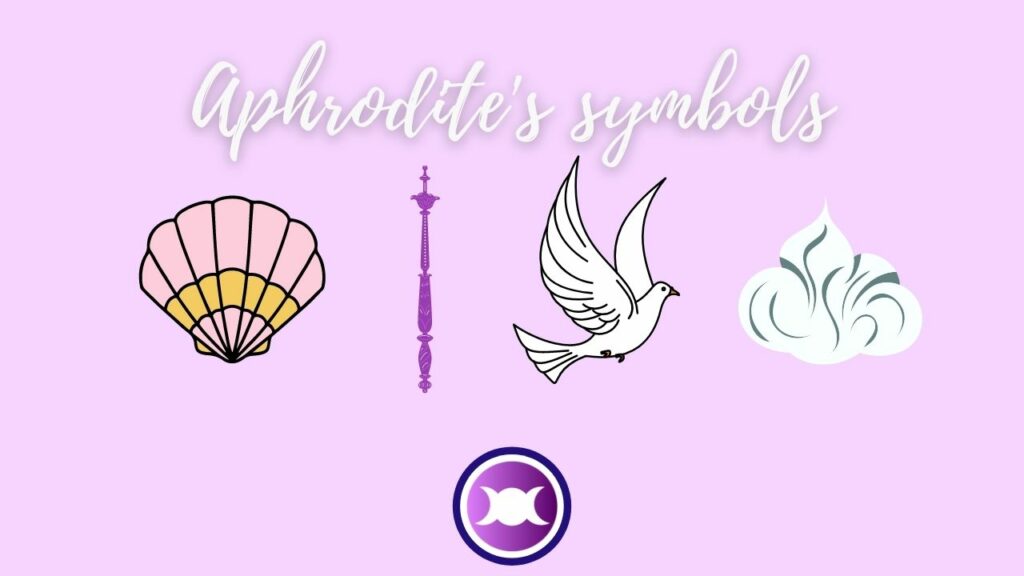
What is Aprhodite’s power?
Aphrodite’s powers are:
- Love;
- Seduction;
- Sex;
- Fertility;
- Procreation;
- Beauty;
- War (mainly in Sparta).
Aphrodite Goddess of war?
Yes. Aphrodite is a Goddess of War. This happened mainly in the region of Sparta, where she was praised before battles. Her epithet there was Aphrodite Areia (like Ares). Moreover, she is responsible for the biggest war we had in Greek Mythology: the Trojan War (more details below). Not only her, of course, but her decisions and actions ultimately led to the war.
Apart from this, when we trace back Goddess Aphrodite’s origins, we find many characteristics in common to older Goddesses from other regions such as Inanna (or Ishtar) and Astarte.
Inanna, the oldest one, was praised as a Goddess of War, Love, and Beauty too in the ancient Mesopotamia region (Sumer, Akkadian Empire, Babylon, and Assyria)
In the Orphic Hymn to Aphrodite, we read:
Come, O goddess born in Cyprus, whether you are on Olympos, O queen,
Orphic Hymn to Aphrodite
Exulting in the beauty of your face, or you wander in Syria, country of fine frankincense,
This mention to Syria may indicate her connections to Inanna because Syria today is in the region where Inanna was worshipped thousands of years ago.
Aphrodite: Goddess of love
Goddess Aphrodite was a totally free and extremely attractive Goddess. She had the men she wanted, including Gods and mortals, so she had several affairs and many children.
Below I’ll explain a bit about her 5 main lovers and some facts involving them – there are lots of confusion, battles, and more!
Aphrodite and Ares
Ares is the God of War and Aphrodite was truly in love with him. It wasn’t just about desire, there was passion. The two kept their love affair for a long time, including during the period when Aphrodite was forced to marry Hephaestus (more details below).
From this union, the Erotes were born (there are variations to their origin myths):
- Eros (Erotism, carnal love);
- Anteros (Requited love and avenger of unrequited love);
- Himeros (Sexual desire, uncontrollable);
- Pothos (Yearning).
They also had other children:
- Deimos (Dread);
- Phobos (Fear);
- Harmonia;
Aphrodite and Hermes
With Hermes, the God of messages and also of thieves, Goddess Aphrodite had a son. But before we talk about this son, it’s interesting to know how they had an affair.
For some reason, Aphrodite didn’t care about Hermes. Zeus, pitying Hermes, sent his eagle to steal Aphrodite’s golden sandals while she was bathing. When she finished the bath, she realized the sandals were gone. And then Hermes came up with the sandals as if he had found them.
And that’s how they had an affair. From this affair, their son was born:
- Hermafroditus, the androgynous
Aphrodite and Dionysus
With Dionysus, the God of Wine and Celebrations, Aphrodite had happy daughters and a son (versions also greatly vary):
- Peitho (Persuasion and Seduction);
- The Charities (usually 3 Goddess who personifies very good and happy things);
- Priapus (Fertility).
Aphrodite and Adonis
Aphrodite was also truly in love with Adonis, a handsome young man. It is said that she kept an affair with him when Ares, moved by jealousy (yes, jealous of Aphrodite!), sent a boar to attack Adonis.
Adonis was injured, lost a lot of blood, and eventually died. Aphrodite rescued him and turned his lost blood into an anemone. Anyway, Adonis went to the underworld in the company of Hades and the Goddess Persephone.
At first, Persephone seemed to be interested in helping Aphrodite by promising to “return” Adonis to the world of the living. But the beauty of Adonis was so great that Persephone also fell in love with him.
A deal was made and Adonis would spend half a year in Hades and half a year in the living world. But Aphrodite was not satisfied with it and the deal was broken. Aphrodite and Persephone began an endless dispute for Adonis until Zeus intervened and resolved the situation by causing Adonis to spend a third of the year with Persephone and a third of the year with Aphrodite. During the other third, he would be free – and they say he would rather be with Aphrodite.
Adonis also caused the earth’s fertility cycle.
Aphrodite and Hephaestus
Here we have a serious problem. Aphrodite was forced by Zeus to marry Hephaestus.
Hephaestus is the son of Goddess Hera, but because he was considered ugly, he was not accepted. As a kind of revenge, he presented his mother with a golden throne that imprisoned her. Zeus asked many times for him to free her.
He simply didn’t want to.
On a meeting with Dionysus, Hephaestus got drunk, and soon after he met Zeus. Zeus asked what he wanted in return for freeing Hera. Hephaestus said he wanted to marry Goddess Aphrodite. Zeus forced her to marry him as if she were an object.
Even married to Hephaestus, virtually nothing changed in Aphrodite’s life. She continued with her affairs. When Helios, the Sun God, discovered that Aphrodite was with Ares, he gossiped to Hephaestus.
Hephaestus then created a magic net to trap Aphrodite and Ares in bed. And it worked! Hephaestus called all the Gods to show how Aphrodite was unfaithful and how Ares was too.
That’s it! After this episode, we have Aphrodite’s most troubling episode, but it has nothing to do with her affairs.
Goddess Aphrodite and the Trojan War
Goddess Aphrodite has different aspects, just like us. On one hand, she is the epitome of beauty and love. But on the other hand, she has some terrible characteristics such as impulsiveness, selfishness, revenge, and anger.
We do have these characteristics within ourselves and we need to control them, but Aphrodite didn’t control much.
The following events led to the biggest war in Greek Mythology: The Trojan War. It all started at a wedding party.
Eris, the Goddess of Discord and daughter of Nyx, was not invited to Peleus and Thetis’s wedding. Then, in order to cause and spread discord, Eris was hidden and threw a golden apple written: “For the fairest” (in other versions it is written “For the most beautiful”) among Aphrodite, Hera and Athena.
The three of them did not know to whom the apple had been thrown. Zeus, as he always tried to avoid confrontation – especially against Goddesses – decided not to give an opinion and designated a trial where a mortal called Paris would decide who would keep the apple.
Each of the three Goddesses offered rewards to Paris in return for the verdict.
- Goddess Hera offered Paris the chance to be king of the lands of Europe and Asia;
- Goddess Athena offered Paris wisdom and warlike skills;
- Goddess Aphrodite offered Paris the love of the most beautiful woman in the world.
Of course, Paris chose Aphrodite so he could have the love of the most beautiful woman in the world in return. And that love was the love of Helen of Sparta.
It turns out that Helen was married to Menelaus, king of Sparta. When she was sent to Troy to be with Paris, tension arose between the two kingdoms. An expedition was made to fetch Helena back to Sparta and this originated the Trojan War.
Goddess Aphrodite Legacy
Goddess Aphrodite survives in our culture quite presently. It is very likely that many people have never realized or wondered about the origin of some words, but we have the beauty and desire of Aphrodite, and her Roman equivalent Venus, in our daily lives.
Here are some examples:
- Aphrodisiac is everything that stimulates sexual desire. The word and its meaning originates directly from Aphrodite;
- Hermaphrodite is a human being or animal born with both reproductive organs. The word comes from the son of Aphrodite and Hermes, Hermaphroditus, who was androgynous;
- Erotic is all about sex. The word and its meaning are related to Eros and the Erotes, sons of Aphrodite;
- The planet Venus is called Venus because its energy was considered feminine and so the name of the most beautiful Goddess was attributed;
- The alchemical symbol that represents Women is the symbol of Venus;
- The act of venerate something is to worship, to praise beauty, intellect and so on. The word also comes from Venus, the most revered Goddess.
- Venereal is all that is related to sex. This word also has its origin in the Goddess Venus.
- The sixth day of the week, in virtually all European languages, is dedicated to Venus. In other languages, like English, it is dedicated to Freyja, also a Goddess of Beauty.
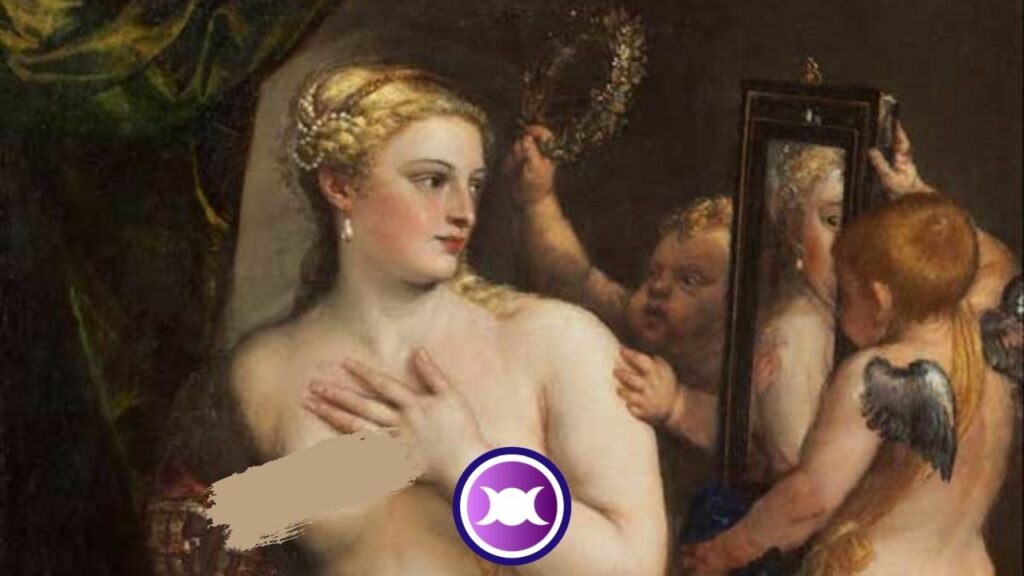
Goddess Aphrodite: art, paintings, and drawings
Being the Goddess of Beauty, Aphrodite has always been and is still an inspiration for art. There are countless Aphrodite paintings and drawings throughout Art History. For some reason, most of them are named Venus.
Therefore, it is more common to find Birth of Venus, Venus and Mars, Venus and Cupid, Venus and Vulcan, and so on. But of course, there are also arts named Aphrodite, Aphrodite and Ares, and so on.
What does Goddess Aphrodite look like? That’s a great question.
What makes this variety of arts of Aphrodite / Venus more interesting is that, as she represents the ultimate beauty, we see her representations changing as the “beauty standards” changed throughout history.
Therefore Goddess Aphrodite’s appearance varies greatly. We have Aphrodite with short and long hair, thinner or fatter, taller or shorter … a huge variety.
Below are some pieces of art dedicated to the Goddess:
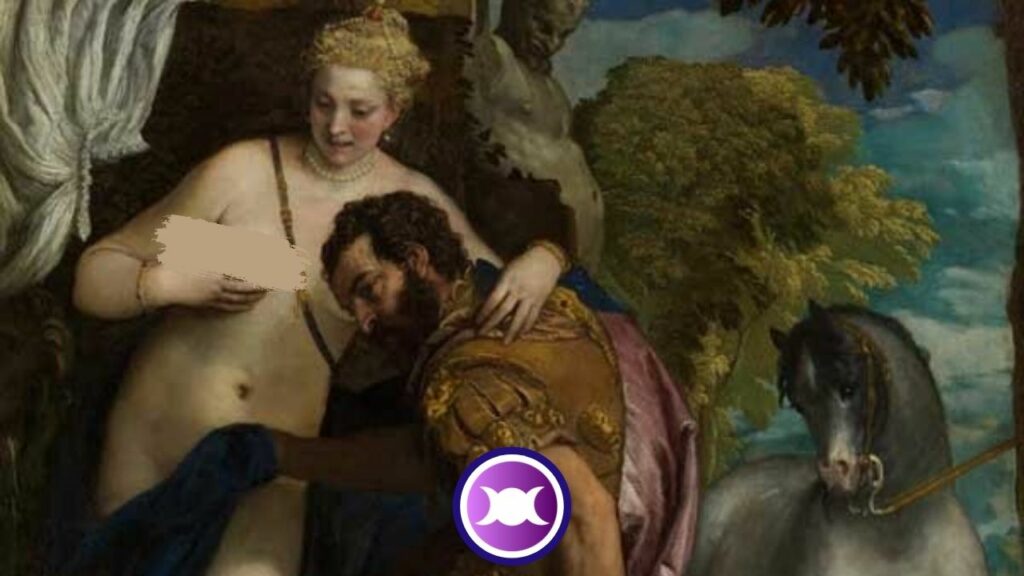
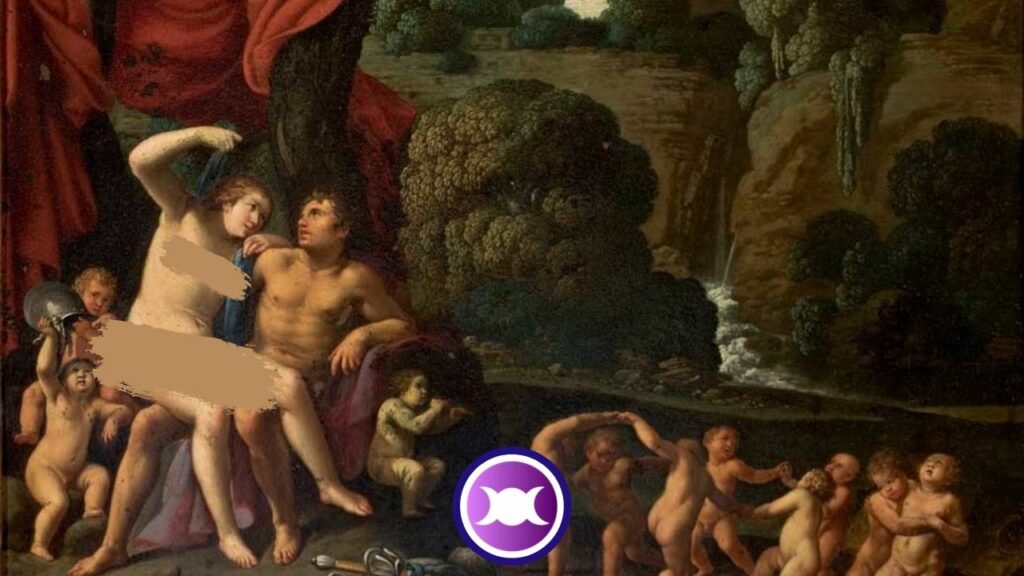

Goddess Aphrodite Images
Below you can find some Goddess Aphrodite images I used for this post ready to be saved to your Pinterest boards. Feel free to save them all!
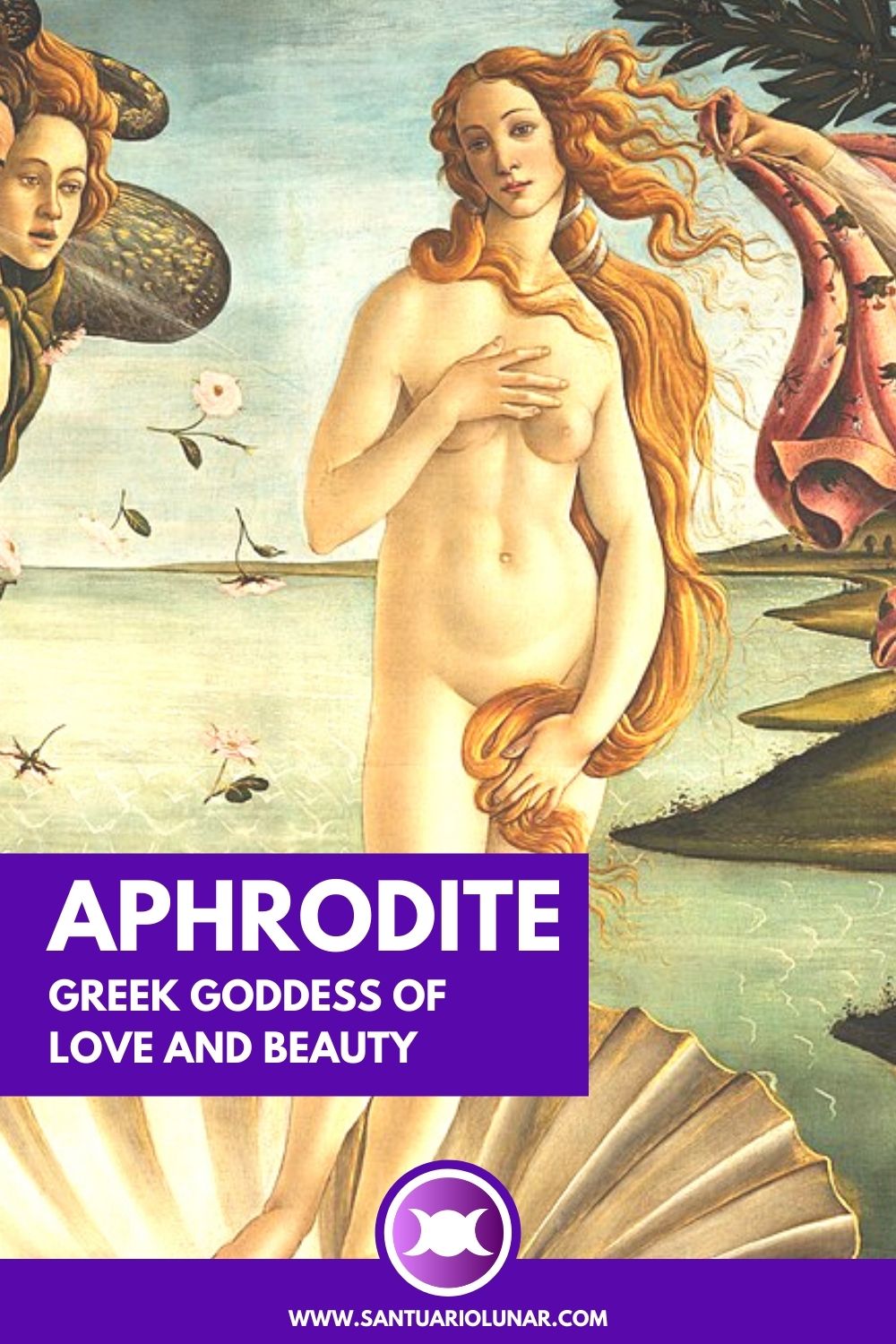
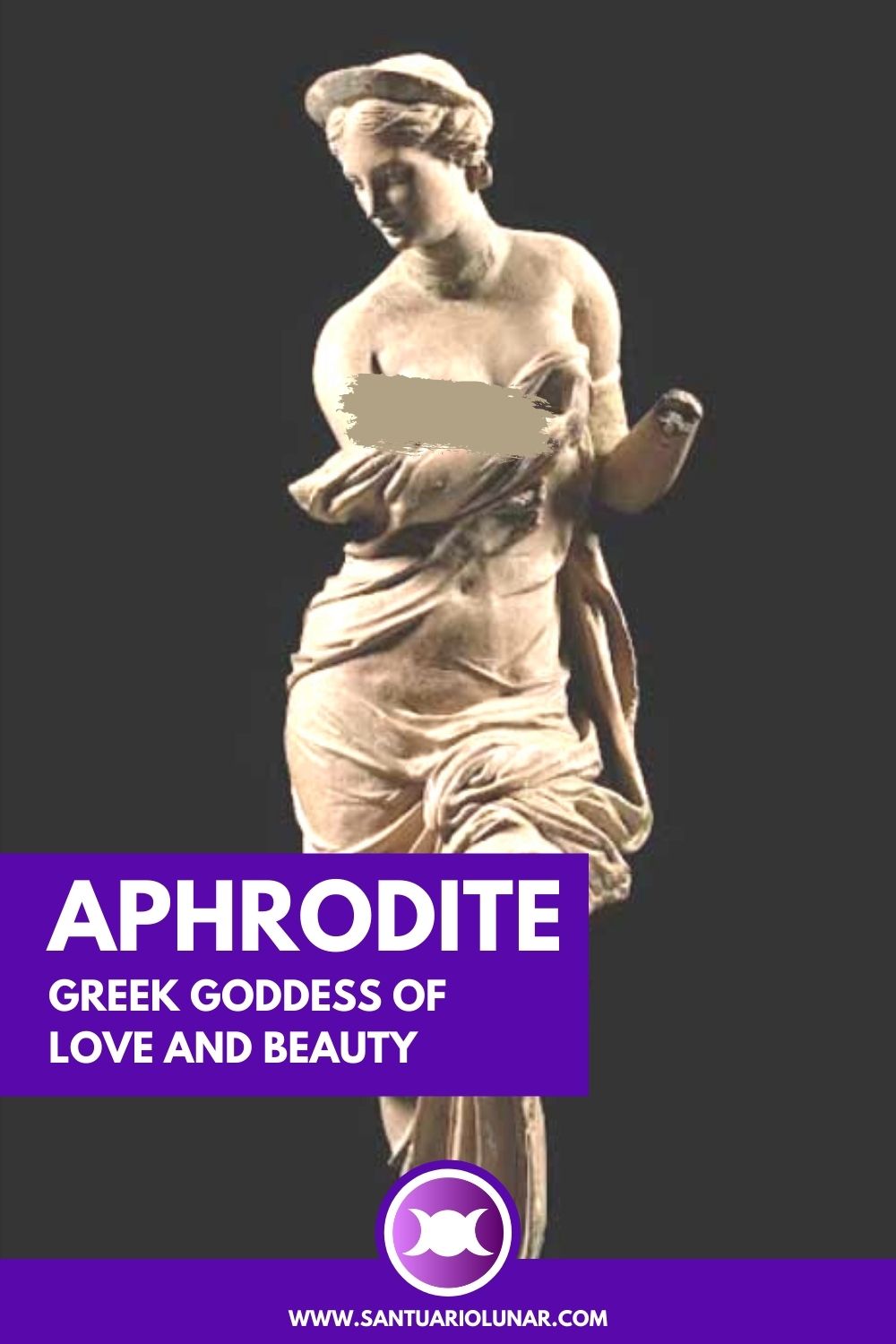
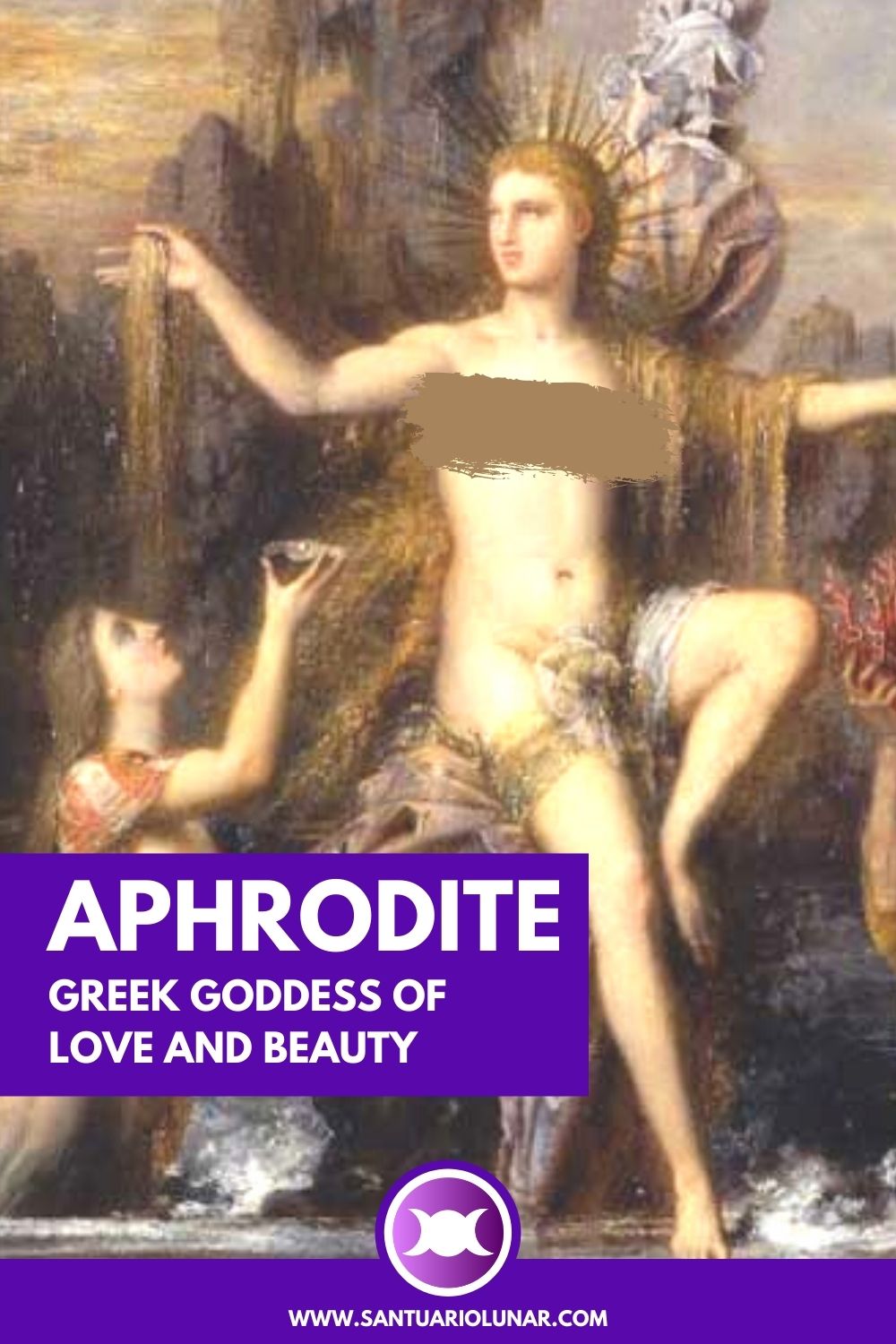
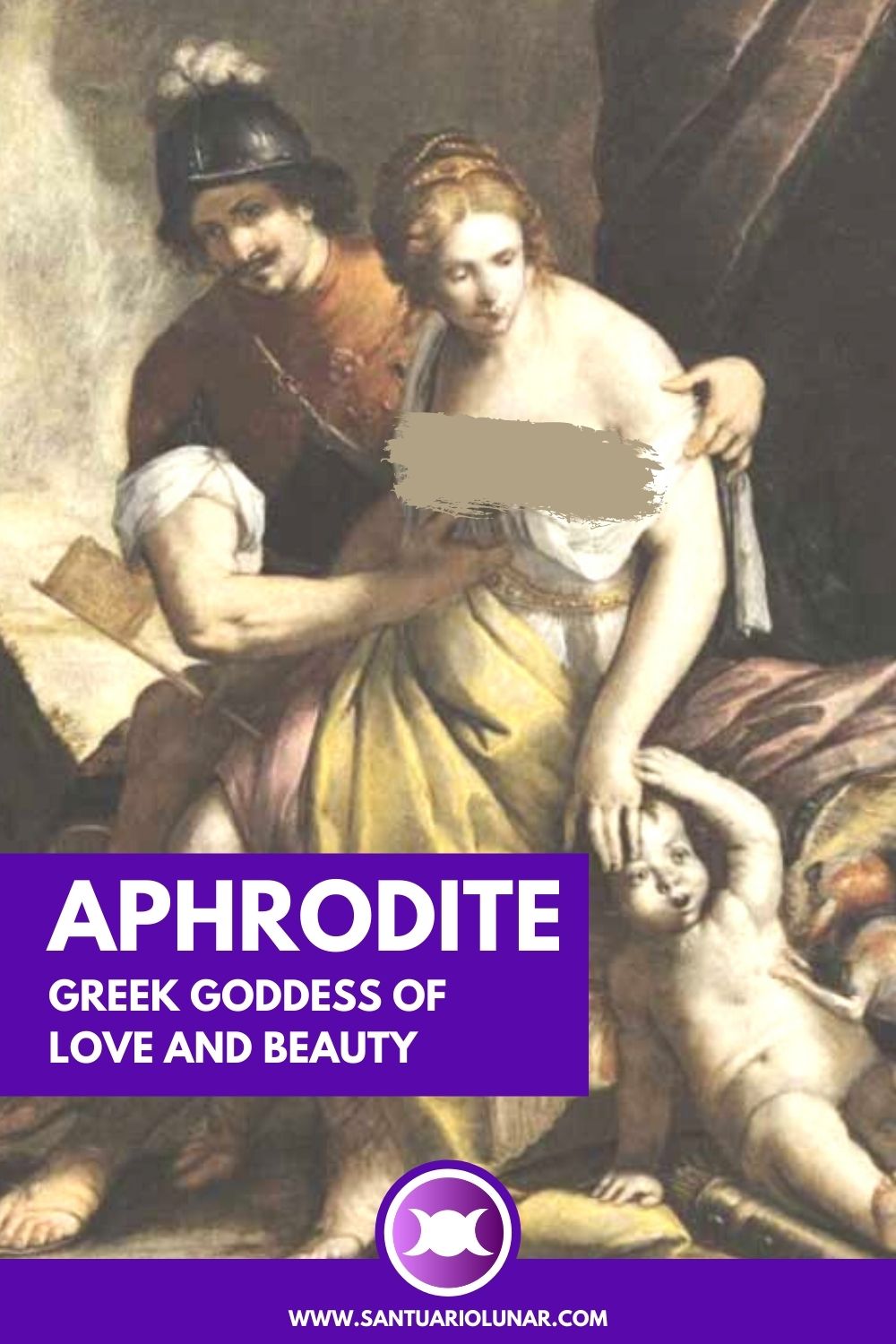
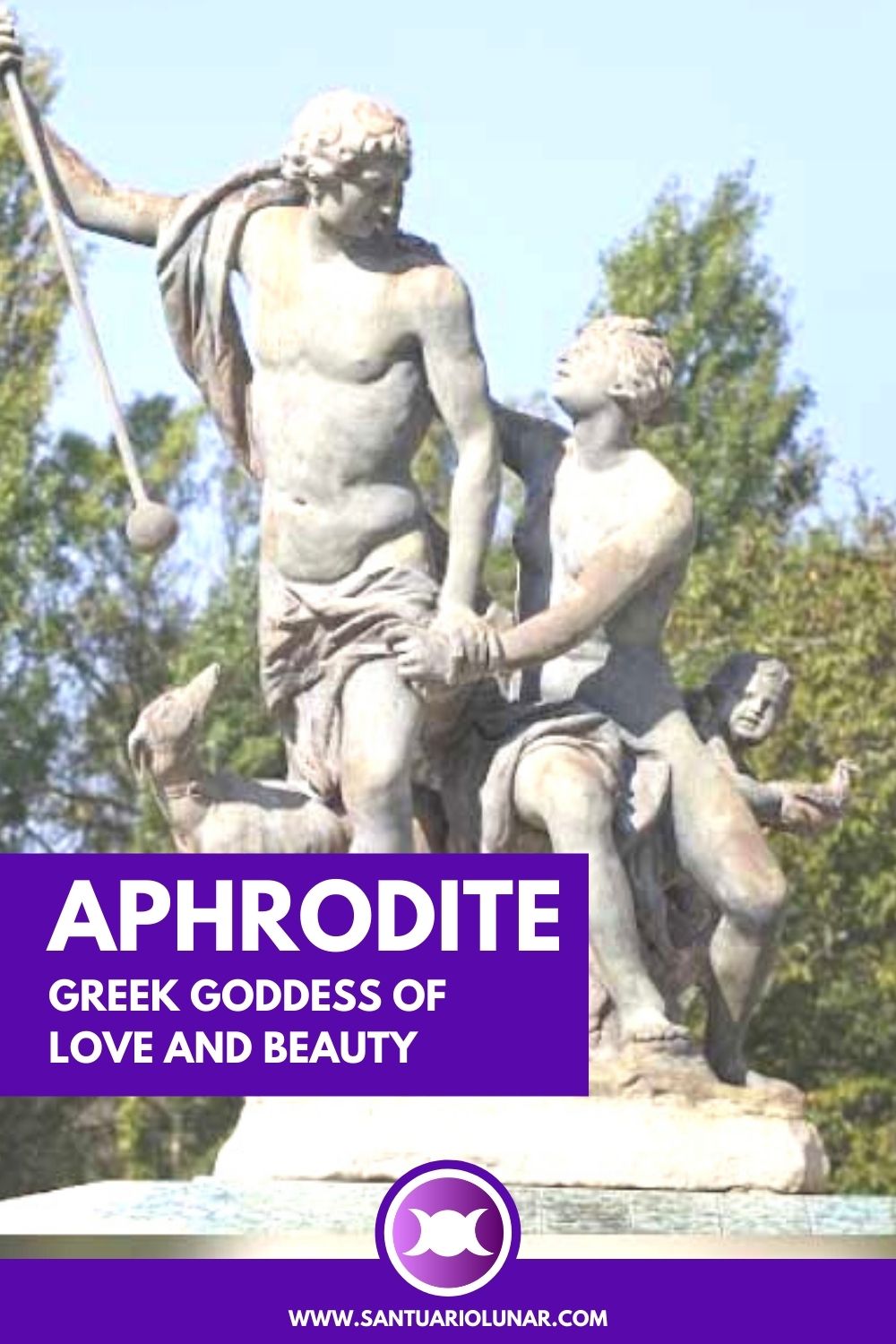
General FAQ
Who is Aphrodite?
Aphrodite is the Goddess of Beauty, Love, and Sexuality in Greek Mythology.
What’s the meaning of Aphrodite
The word “Aphros” means “foam”. Aphrodite is the one born from the foam. This also explains the origin of the name Aphrodite.
How was Aphrodite born?
Aphrodite was born when Uranus’s fluids, or his organ, fell into the ocean. On this occasion, a foam, Aphros, emerged, and from this foam, Aphrodite was born.
What are the symbols of Aphrodite?
Aphrodite is symbolized by the scepter, doves, shells, and foam.
How to invoke Aphrodite?
To invoke Aphrodite, it is enough to know how to appreciate all that is beautiful and to dedicate to the Goddess all that is “aphrodisiac”, which belongs to Aphrodite.

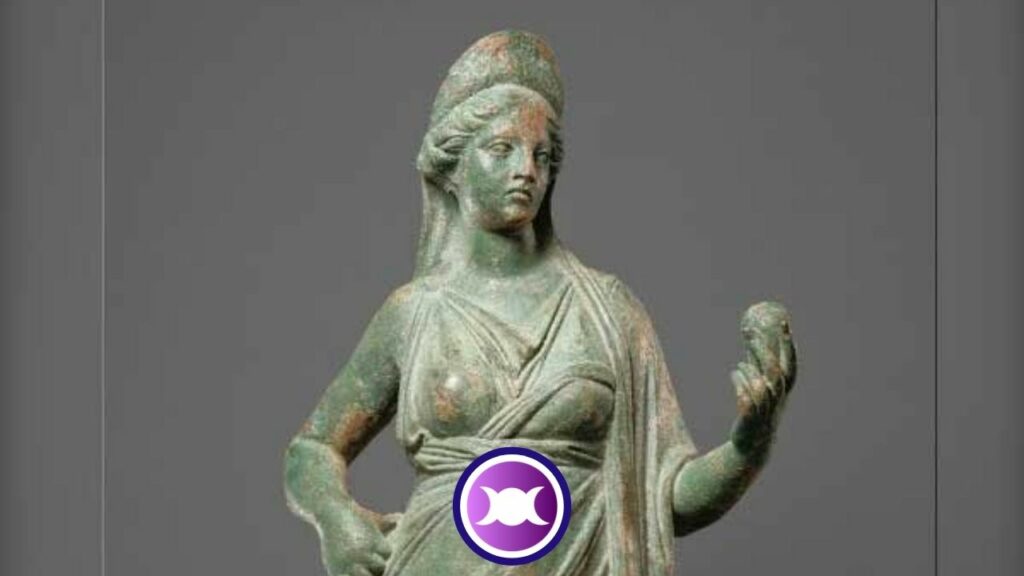
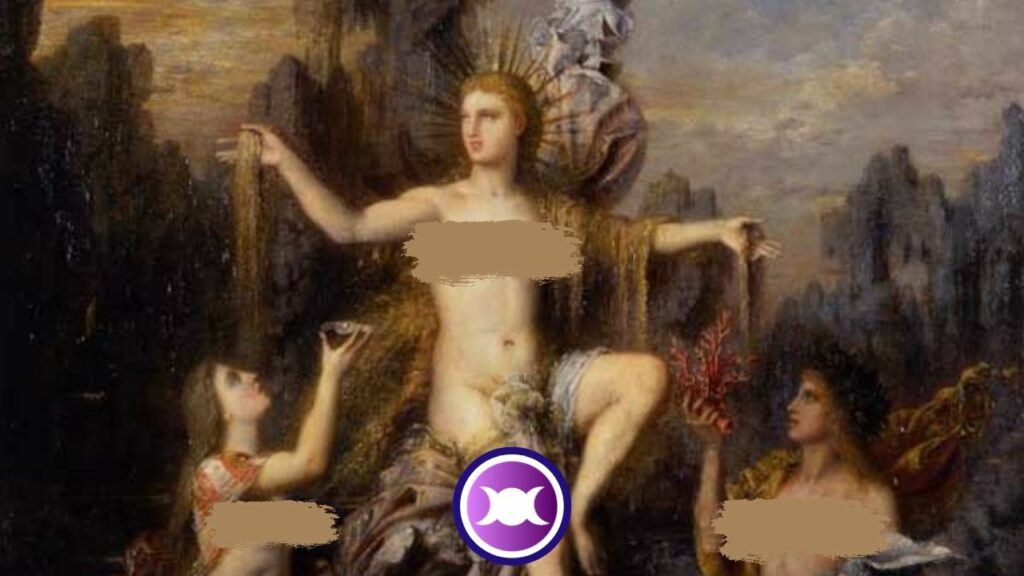
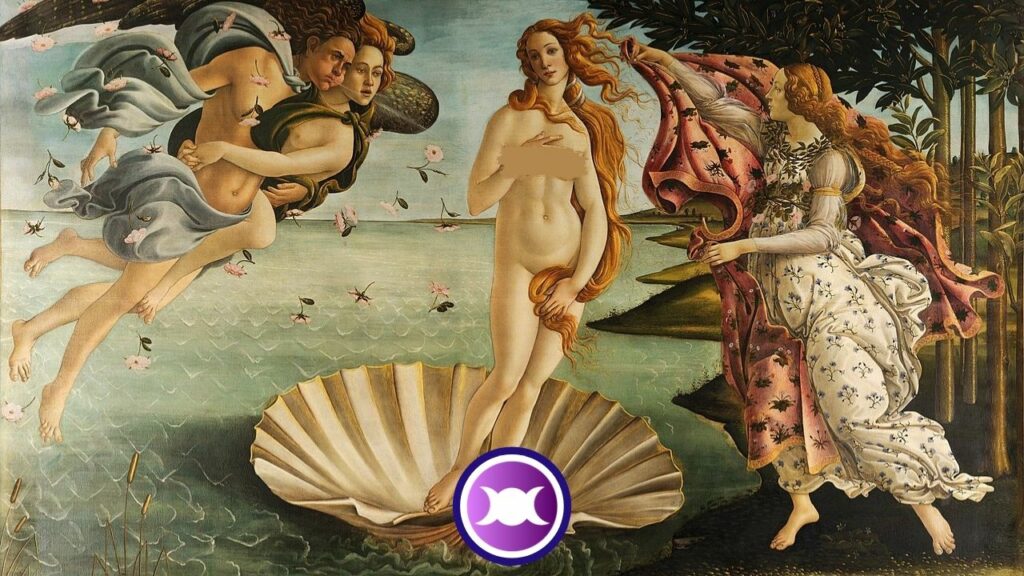
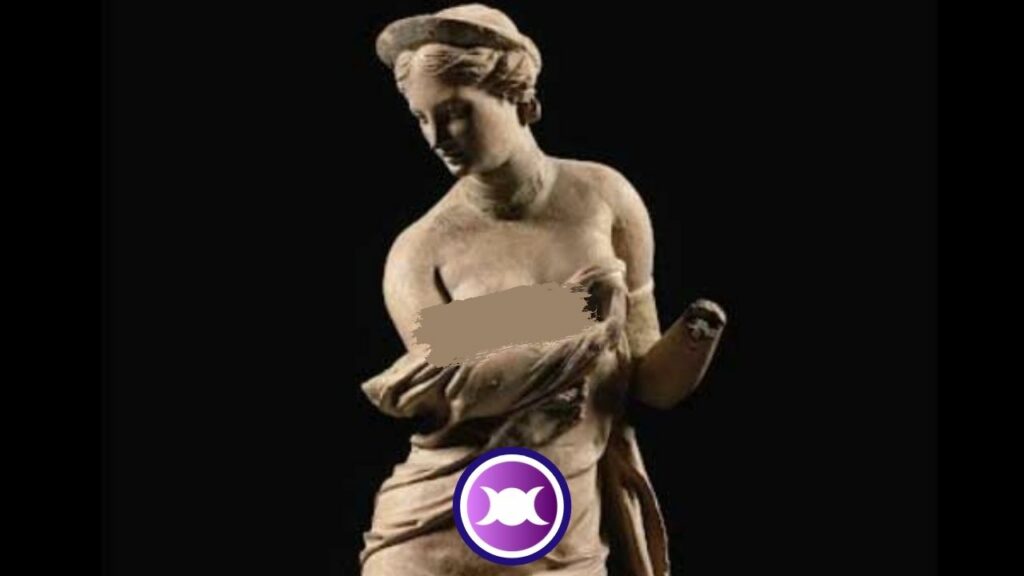
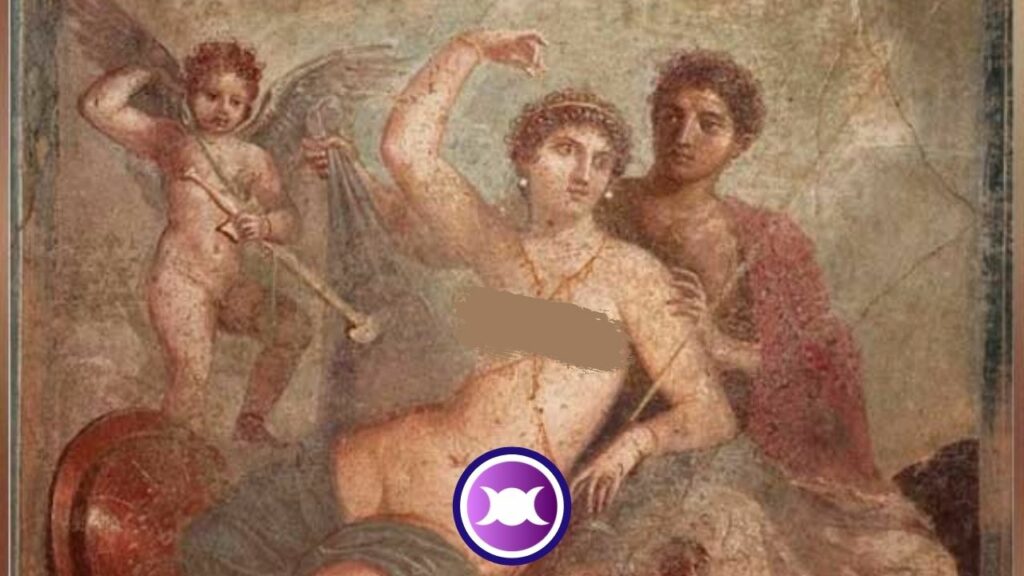
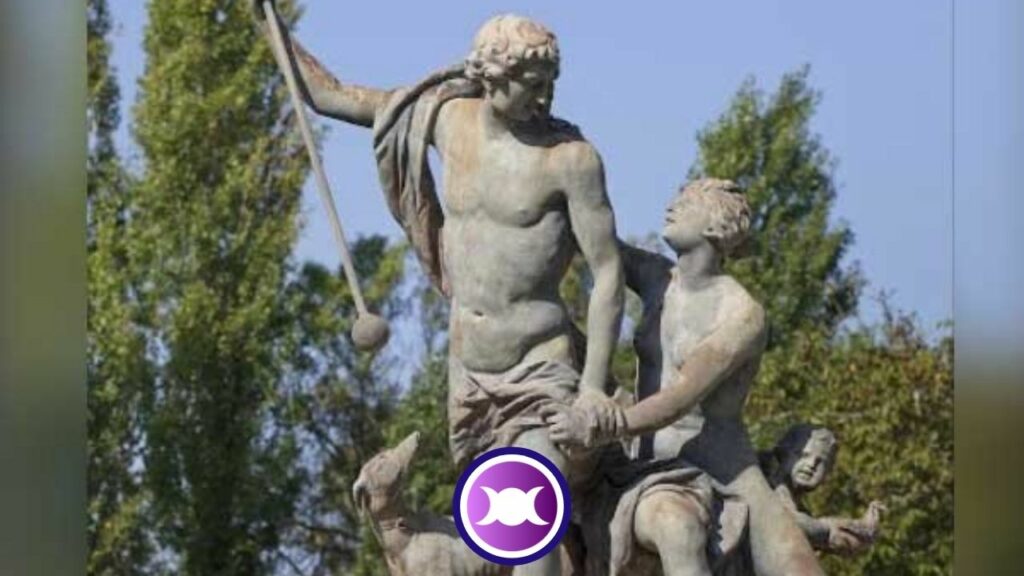
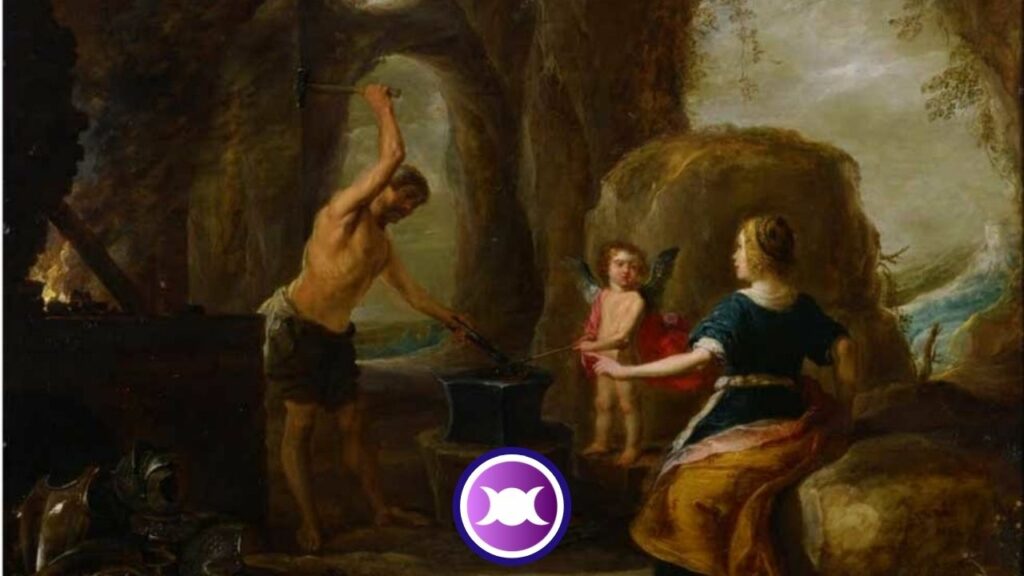
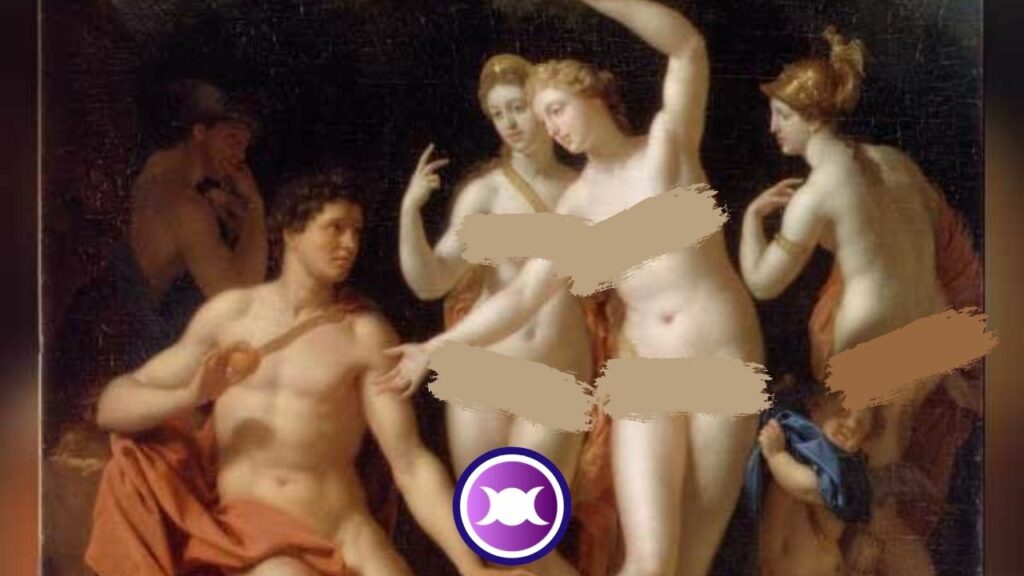
15 thoughts on “Goddess Aphrodite story: Symbols + 5 of her lovers explained”